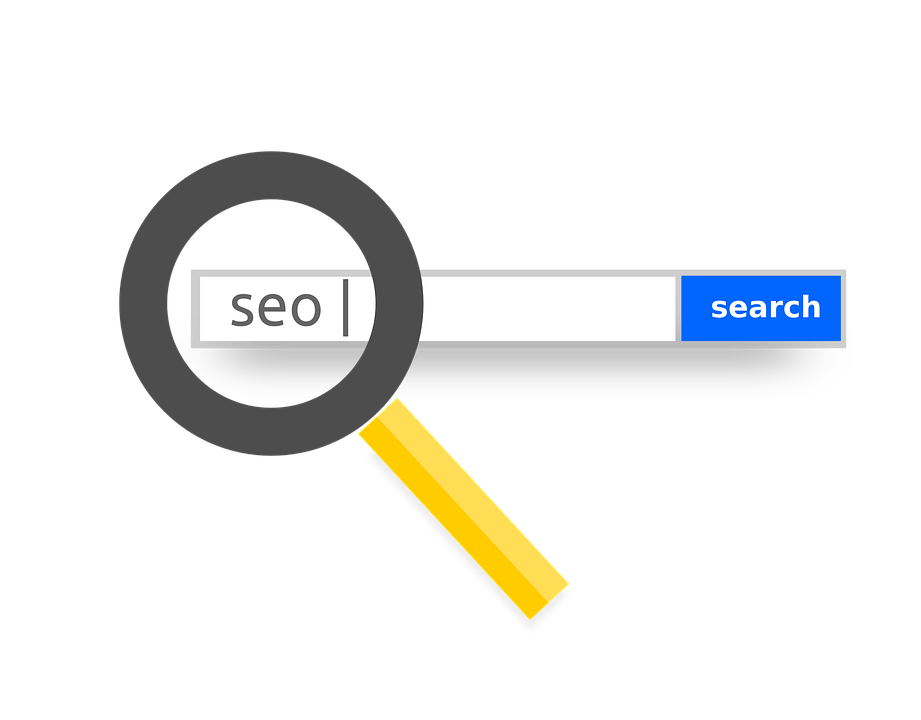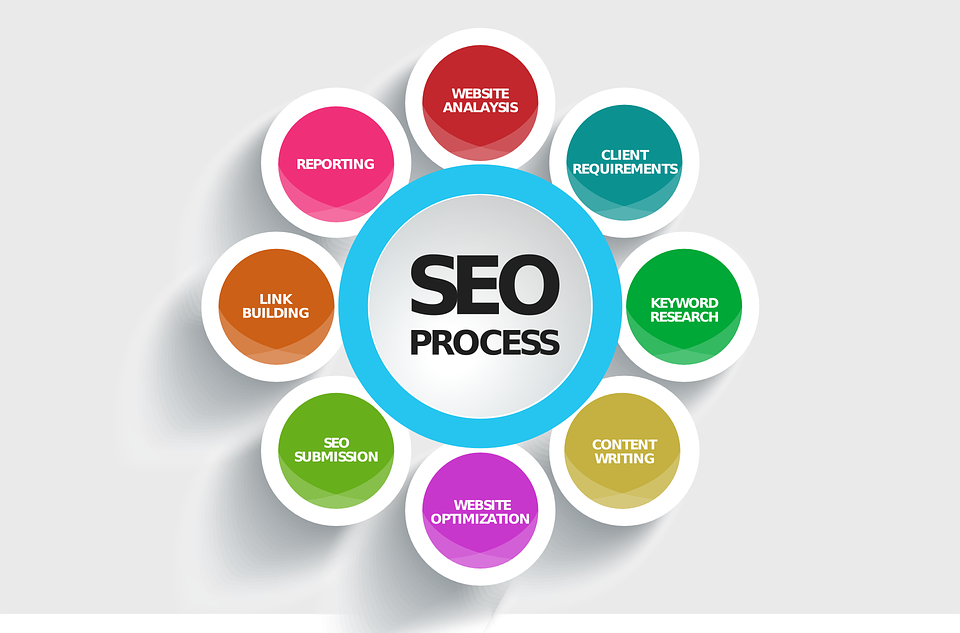10 Reasons to Hire an SEO Copywriter
An SEO Copywriter Can Help Propel Your Website to Higher Ranking on Google

Not all copywriters are created equal. It used to be that you had only to find someone who had 1) writing talent, and 2) marketing expertise.
Those skills were great for writing print materials like brochures, ads and press releases. But then along came the web and a whole new set of rules.
Suddenly, good copy wasn’t enough for websites. To be effective, websites had to rank well on search engines. So copywriters had to add a third ability to their bag of tricks — 3) search engine optimization.
Search engine optimization, or SEO as it’s commonly called, is the process of writing your website so that it receives a high ranking on the major search engines like Google and Bing for your main keywords.

When someone is searching for a product or service you offer, you want your site to come up in search results.
When someone types a word or phrase into a search engine looking for your product, you want your website to appear in the search results. According to HubSpot, “89% of U.S. internet users search online before they make a purchase, even when the purchase is ultimately made at a local business.”
Since the typical searcher doesn’t go beyond the first page, your site might as well be invisible if it doesn’t rank well. In fact, it’s been said that the best place to hide a dead body is page two of Google.
If you’re considering hiring a professional copywriter to create content for your website, choose one who understands how search engines rank sites. Here are 10 reasons to select a professional SEO copywriter:
1. An SEO copywriter knows how to select the right keywords.
She has the knowledge base to be able to select which keywords will bring your website the most traffic and which keywords offer you an opportunity to compete. Broad terms are often too competitive. It’s best if you can find a variety of niche or long-tail keywords that help you stand out in the crowd.

Your best bet for being found in search results is to target the right keywords.
2. An SEO copywriter knows how to focus the page so that it ranks best.
Good content goes beyond keyword selection. To be most effective, the focus must be reasonably narrow, and all of the text must support that focus.
In an article on Medium, Deepanshu Gahlaut provides this insightful quote: “The beauty of SEO is that, instead of pushing a marketing message onto folks who don’t want to hear what you have to say, you can reverse-engineer the process to discover exactly what people are looking for, create the right content for it, and appear before them at exactly the moment they are looking for it. It’s pull vs. push.” — Cyrus Shepard
3. An SEO copywriter knows how to skillfully weave keywords into the copy.
She’ll know how often to use your keywords and where to best place them for maximum effectiveness. You don’t want your copy to sound awkward. It has to appeal to your visitors, not just search engines. An SEO copywriter will leverage every keyword opportunity while making sure the copy reads smoothly.

A skilled SEO copywriter knows how to write copy that not only appeals to search engines but also to your visitors.
4. An SEO copywriter knows how to incorporate keyword phrases into headlines and subheads.
Headings not only serve to break up large chunks of type, making them easier to read, they also clue the search engines as to your page’s main topic. They carry more weight than body text when it comes to search engine ranking, so it’s imperative that you craft them correctly.
5. An SEO copywriter knows how to write title tags and meta-description tags.
Meta tags are information inserted into the “head” area of your web pages. They are used by search engines to more accurately list your site in their indexes.
Every page of your website should have unique tags. If it doesn’t, you’re missing out on a major opportunity. And if you’re using tags like “Home Page” or “FAQs,” your tags are a waste of effort.
Just as you optimize the body copy of your website, the tags should be optimized as well. Search engines scan these tags for your main keyword phrases and factor them into the algorithm for ranking your site.
Also, the text you use in your title and meta-description tags often appears in search engine results. That listing influences whether a searcher clicks on your site or one with a more compelling “sales pitch.”

SEO content should be a significant part of your online marketing strategy.
6. An SEO copywriter knows the right length to make the page.
A page that is too short won’t rank well on the search engines. You need to show Google that you’re an informational resource with depth. But too long and you’ll bore the reader and off he’ll go to the next site in his search results.
Search Engine Watch says the trick is to be useful. “You’ve got to be relevant to consumers’ needs in the moment and connect people to the answers they’re looking for.”
7. An SEO copywriter knows how to write links.
Not only must should your links be compelling to readers, they must also be search engine optimized. The often-seen “click here” phrase is a lost opportunity to enhance a site’s ranking. Ideally, your links contain words that are related to your keywords and the page’s focus.
You’ll want to include some internal links — links that go to other pages of your website — and external links — links that go to other websites. That may sound counter-intuitive, linking out from your site, but it shows Google that you are a valid information source providing a comprehensive picture of your subject matter.

Compare your ranking on Google with your competitor’s. How does your site fare for its main keywords?
8. An SEO copywriter knows how to analyze competitor websites and take advantage of their weaknesses.
Choosing the right keywords are critical. Look at your competitors’ websites. What keywords have they targeted?
If a competitor’s website doesn’t rank well for a specific keyword phrase that happens to be getting lots of searches, that presents you with an opportunity. You can create pages to target that keyword phase and thereby increase traffic to your site.
Becky Bicks writing on Oz Content offers the following insightful quote, “A real estate agency in Wichita has no shot at ranking for the phrase “real estate;” a lawyer in Fresno has no shot at ranking for the word “lawyer.” Optimize for relevant, specific keywords that will bring targeted traffic.” — Matt McGee
9. An SEO copywriter knows how to write landing pages.
Sometimes known as lead capture pages, landing pages appear when a potential customer clicks on an advertisement or a search-engine result link. The page will usually display content that is a logical extension of the advertisement or link, and that is optimized to feature specific keywords or phrases. It has tightly focused subject matter and often offers some sort of freebie like a free report or free entrance to a webinar.

Landing pages are especially effective for SEO because of their tightly focused subject matter.
10. An SEO copywriter knows to not use tricks to attempt to fool the search engines, but rather to provide good quality information and use “white hat techniques,” as best SEO practices are often called.
The best web copy should do the following:
- Be search engine optimized for best possible ranking
- Convey useful information in a clear, succinct manner
- Communicate your company’s strengths and capabilities
- Convert visitors into prospects and leads into sales

There’s a lot that goes into an SEO strategy. An experienced SEO copywriter can guide you through the process.
Professional SEO copywriters spend years honing their craft. They learn best practices for creating high-ranking websites. They’ve tested optimization theories and seen for themselves how to influence search engine rankings. They know how to get results and can school you in SEO best practices.
Most important, they are aware of the many different variables that go into creating a quality website that is successful on all levels. A pro is the best way to go for SEO!
* * *
Contact Susan Greene
Need help with search engine optimization? Work with a pro who knows SEO.
Get a quoteTestimonial
Looks amazing
We love everything about this website copy! Looks amazing. Thank you again for all your help in launching Ledger Lovers Co. bookkeeping services.
Anna Hoopes Mandac
Owner
Ledger Lovers Co.
Cleveland, Ohio

